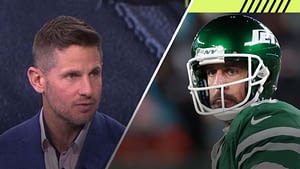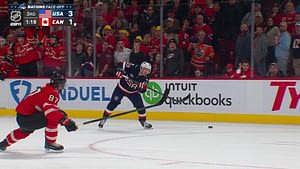NCAA’s New Strategy: A Bold Move in the Battle Against Sports Betting Corruption
In the ever-evolving landscape of sports betting, the NCAA has taken a bold step to protect the integrity of college sports. It’s a move that might raise eyebrows, but it also showcases a rare moment of strategic savvy from an organization often criticized for its rigidity. Let’s dive into the details of this intriguing development.
First, let’s set the stage. The NCAA is no stranger to the challenges posed by sports betting. With hundreds of teams and countless athletes, the task of safeguarding the integrity of college sports can seem Herculean. “It’s absolutely a challenge,” admits Mark Hicks, the NCAA’s managing director of enforcement, who leads the charge against gambling-related threats.
Recent incidents have highlighted the vulnerabilities. Suspensions in men’s basketball, for instance, have raised concerns. These weren’t tied to high-profile events like March Madness but rather obscure bets on low-major teams. The question is, how do you combat such threats?
Enter the NCAA’s latest move, which might seem like a contradiction but is, in fact, a clever maneuver. As ESPN’s David Purdum reported, the NCAA has partnered with Genius Sports to provide licensed sportsbooks with official data from championship events. This includes the prestigious men’s and women’s basketball tournaments. Additionally, sportsbooks can use the NCAA logo and branding on their apps.
At first glance, this might appear as another “do-as-I-say, not-what-I-profit-from” deal. However, there’s a crucial catch. To access this valuable real-time data, sportsbooks must agree to several conditions. Most notably, they must ban individual prop bets, especially those on underperformance, which the NCAA deems easily manipulated.
Why is this important? Well, it’s far simpler for a single athlete to underperform than for an entire team to throw a game. A player can miss shots or feign an injury, making them prime targets for criminal gambling rings. This was evident in the case involving NBA player Jontay Porter.
The NCAA is particularly concerned about smaller schools with struggling teams. Here, players may be unaware of their vulnerability, and the lack of NIL money in their accounts makes them even more susceptible. Athletes can also place bets on themselves or share insider information with friends, which, while seemingly innocent, is still a crime.
“There is this belief that sports match manipulation is an organized crime deal and there’s no denying that,” Hicks explains. “But at the same time, we’ve entered into a space where with ease [athletes] can place bets on themselves or give information to the sophomore across the hall that, ‘Hey I’m not feeling great today.'”
Moreover, prop bets on individual performance expose athletes to online harassment from disgruntled gamblers. The NCAA has been advocating for laws to combat this issue as well.
By offering sportsbooks that comply with these conditions a competitive edge, the NCAA hopes to reduce the prevalence of problematic bets. “NCAA data will only be available to sportsbooks if they remove risky bets from their platforms and agree to fully cooperate with NCAA investigations and provide key information, including geolocation data and device records,” says Tim Buckley, the NCAA’s senior vice president for external affairs.
It’s uncertain how many sportsbooks, including ESPN BET, will join this initiative. The NCAA plans to use any revenue generated to fund further sports wagering education efforts.
While this move won’t solve the problem entirely, it represents a step in the right direction. Those determined to place prop bets will still find ways, legal or not. However, this initiative should have a tangible, albeit modest, impact.
“It’s just so easy and with all the different offerings and betting on the statistical performance of individuals … it’s just really fragile,” Hicks notes. “We want to believe that these games are unpredictable, that they’re being played by people who don’t have ulterior motives. That they’re playing to win. But it’s a fragile system.”
The NCAA has long opposed the legalization of sports wagering, even as it boosts TV ratings. Now, it lobbies for state and federal bans on individual player prop bets, with some states like Louisiana, Maryland, Ohio, and Vermont already on board.
In the past, the NCAA wielded significant power through strict rule enforcement and a trusted public image. Those days are largely behind us, but the challenges remain as daunting as ever.
Tuesday’s move isn’t a panacea, but it’s a smart use of the leverage the NCAA still possesses.
- Partnership with Genius Sports
- Ban on individual prop bets
- Focus on smaller schools
- Efforts to combat online harassment
- Revenue for educational initiatives
Originally Written by: Dan Wetzel





















